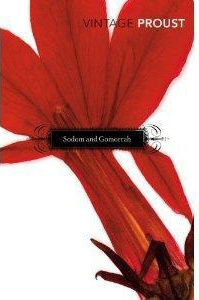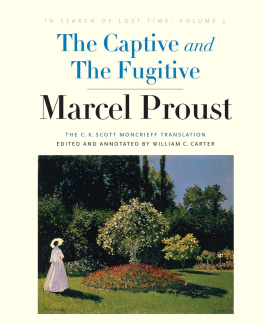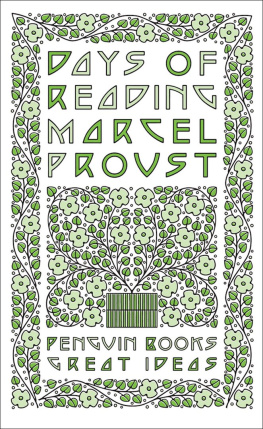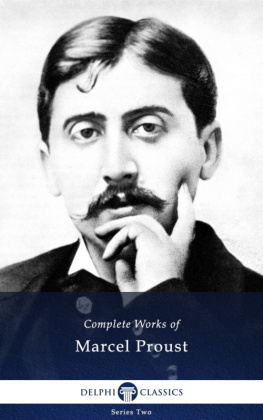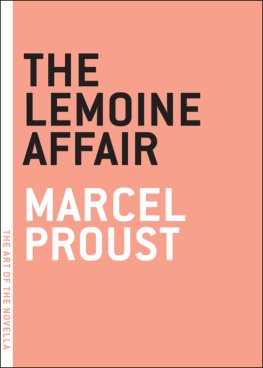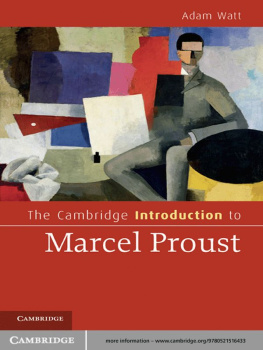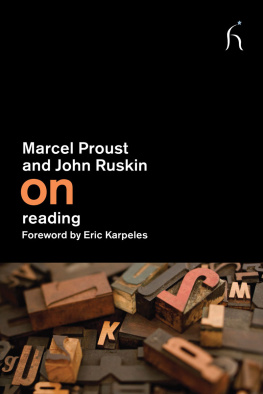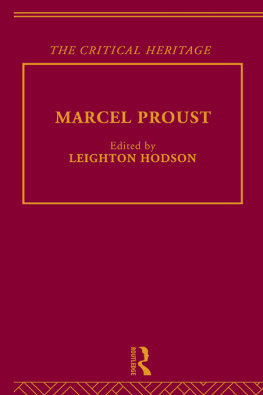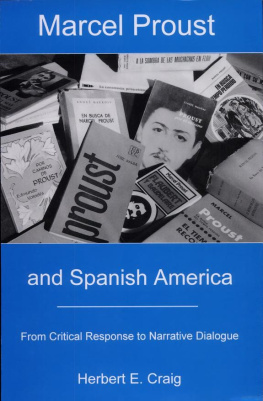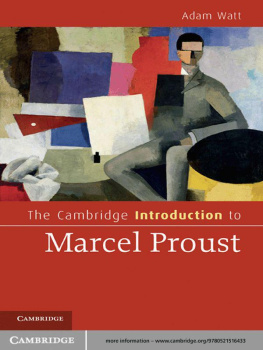Pleasures and Days and Memory
Short Stories by
Marcel Proust
A DUAL-LANGUAGE BOOK
Les Plaisirs et les Jours
et Souvenir
Nouvelles par Marcel Proust
Pleasures and Days and Memory
Short Stories by
Marcel Proust
A DUAL-LANGUAGE BOOK
Les Plaisirs et les Jours
et Souvenir
Nouvelles par Marcel Proust
MARCEL PROUST
Translated and Annotated by
EDWARD OUSSELIN
DOVER PUBLICATIONS, INC.
Mineola, New York
Copyright
English translations, Introduction, and footnotes copyright 2014 by
Edward Ousselin
All rights reserved.
Bibliographical Note
Pleasures and Days and Memory: Short Stories by Marcel Proust / Les Plaisirs et les Jours et Souvenir: Nouvelles par Marcel Proust : A Dual-Language Book, first published by Dover Publications, Inc., in 2014, is a new selection of stories from standard French editions, accompanied by new English translations prepared for the Dover edition by Edward Ousselin, PhD, who also made the selection and wrote the Introduction and footnotes.
Library of Congress Cataloging-in-Publication Data
Proust, Marcel, 18711922.
[Short stories. English]
Pleasures and Days and Memory = les Plaisirs et les Jours et Souvenir: short stories by Marcel Proust: a dual language book / Marcel Proust; translated and annotated by Edward Ousselin.
p. cm. (Dover dual language French)
ISBN-13: 978-0-486-49702-0
ISBN-10: 0-486-49702-X (pbk.)
1. Proust, Marcel, 18711922Translations into English. 2. Paris (France)Fiction. I. Ousselin, Edward, editor of compilation, translator. II. Title.
PQ2631.R63A2 2014
843'.912dc23
2014007019
Manufactured in the United States by Courier Corporation
49702X01 2014
www.doverpublications.com
CONTENTS
INTRODUCTION
Marcel Proust is, of course, best known for his seven-volume novel la recherche du temps perdu, which was published from 1913 to 1927 (the last three volumes were published after his death). The lasting critical success of this intricately constructed novelistic reflection on time, memory, and literature has confirmed Prousts status as one of the most influential novelists of the twentieth century.
His first book, Les Plaisirs et les Jours, was published in 1896. This collection of short stories, prose poems, and verse provides an introduction to Prousts work.
ABOUT PROUST
Marcel Prousts life (18711922) spans two traumatic periods in French history. In institutional terms, the Franco-Prussian War (18701871)and the ensuing undeclared civil war, known as La Commune (1871), which pitted an insurgent Paris against most of the rest of the countrymarked the end of the Second Empire and the beginning of the Third Republic (which would last until 1940). Proust outlived by a few years the long and very bloody First World War (19141918). Between these two outbreaks of warfare, Western Europe enjoyed a relatively rare and prolonged period (encompassing most of Prousts life) of peace, the latter part of which is usually referred to as the Belle poque. An era of rapid technological progress, of colonial conquests in Africa and Asia, of rising prosperity (especially for some), and of artistic innovation, the Belle poque is also the historical period that produced many of the cultural monuments, events, and movements (the Eiffel Tower, Impressionism, les intellectuels, etc.) that are commonly associated with the image of France around the world.
Much of Prousts fictional work is set in what was then called le monde (sometimes also referred to as la bonne socit), the upper socioeconomic strata of French society at the end of the nineteenth century that, especially in Paris, included la haute bourgeoisie and what was left of the aristocracy, and around which gravitated much of the world of art and literature. Due to his family background and to his own tastes and achievements, Proust became part of that social milieu, although he was also marginalized to a certain extent.
While not extremely rich, Prousts family was certainly well-off (his father, Adrien, was a very successful medical doctor and professor). Marcel received an excellent education and quickly acquired a reputation as a promising young writer. However, as a gay man who was also partly of Jewish origin (his mother, Jeanne, who was Jewish, accepted upon marrying Adrien that their children would be baptized and raised as Catholics), Proust was not always fully accepted in le monde, the exclusive social milieu to which he initially aspired but which he later described so minutely and so critically. Prousts homosexuality and Jewish family background would, of course, become important thematic threads within his fictional works.
Among the more notable social and political events that occurred in France during the Belle poque, readers of Prousts work should be aware of lAffaire Dreyfus (18941906), within which Proust was already known (though he was nowhere near as famous as he would become after the publication of the Recherche). LAffaire is reflected in Prousts fictional work, as are many of the important cultural events and movements of his lifetime. Les Plaisirs et les Jours contains short texts that were written before the Dreyfus Affair permeated French intellectual life. In that sense, this early collection of Prousts fictional shorter works provides a glimpse into the first efforts, or the apprenticeship (and, often, successes), of a future master of his art.
ABOUT THIS EDITION
This dual-language edition includes the entire text of Les Plaisirs et les Jours, except for the brief rhymed section entitled Portraits de peintres et de musiciens. It also includes the first (uncharacteristically short) work of fiction published by Proust in 1891, Souvenir, which prefigures some of the thematic elements of Les plaisirs et les jours (and, indeed, of la recherche du temps perdu).
Reading Proust can be challenging even for a native speaker. He favored long sentences with multiple subordinate clauses. His style tends to be allusive, leading readers to infer and draw conclusions. His texts are full of references, not only to other writers, but also to music, theater, philosophy, and historical events. And, of course, the social milieu in which most of his fiction is set has largely disappeared. However, as readers around the world have discovered, reading Proust is well worth the effort.
The purpose of this bilingual edition is to help learners of French transition to reading and appreciating Prousts original prose. Wherever possible, therefore, the English translation remains literal: it generally follows the structures of Prousts complex sentences and makes use of cognates (while steering clear of faux amis). As an example of the recurring French constructions to be mindful of, while enjoying Prousts elegant style, readers should explore the multiple meanings, contexts, and uses of the pronoun on, which can be translated, for instance, as one, we, the generic you, or the passive voice. The use of the pronoun soi adds another level to the challenge of translation. Consider the following example: En entrant, on voyait en face de soi la mer (from La mort de Baldassare Silvande). Possible translations include:
There was a view of the sea ahead.
Ahead, the sea was visible.
The sea could be seen straight ahead.
You could look directly out at the sea.
We had a view of the sea right in front of us.
And, of course, a strictly literal, if infelicitous, rendering would be: One could see the sea in front of oneself. In this edition, the goal is not to attempt to reproduce the brilliance of Prousts style, but to provide language learners (and, hopefully, lovers of literature) with an English equivalent that is as close to a linguistic mirror image as possible, thereby facilitating the reading of the original French text.
Next page


